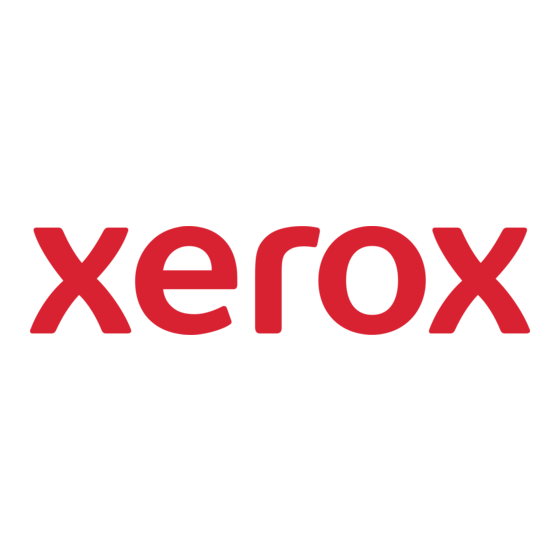Xerox 8400B - Phaser Color Solid Ink Printer Review Manual - Page 9
Browse online or download pdf Review Manual for Software Xerox 8400B - Phaser Color Solid Ink Printer. Xerox 8400B - Phaser Color Solid Ink Printer 16 pages. Color printer
Also for Xerox 8400B - Phaser Color Solid Ink Printer: Competitive Comparison (2 pages), Quick Reference Manual (11 pages), Setup Manual (2 pages), Accessories Manual (22 pages), Brochure & Specs (4 pages)

SECTION 3
Inside a Solid Ink Printer
Looking inside the Phaser 8400 colour printer reveals a surprisingly simple printing mechanism for such a powerful printer.
In simplest terms, to make a print, a printhead applies ink droplets, comprising a printed image, onto a rapidly rotating,
heated drum. The image is transferred directly off the drum onto a sheet of paper. The final print is completely dry since
the ink solidifies as soon as it transfers to the paper.
Drum
Printhead
Maintenance roller
Printhead
Transfix roller
Image transfer
from drum
to paper
Drum
Sheet of paper
Preheater
Transfix roller
Cooled solid
ink on paper
Image transfer
Heated, soft
ink on drum
Drum
Drum heater
Transfix roller
Drum
Sheet of paper
Preheater
Ink stick
Ink loader
Drum
Ink reservoir
Printhead
Ink jets
Preparing to print.
As the printing process
begins, the long-life maintenance roller
quickly applies a microscopic layer of
silicone oil to the heated drum for
reliable ink release.
Single pass imaging.
Next, the full-width
printhead applies all colours at the same
time on the rotating drum.
A sheet of paper is rapidly
Image transfer.
fed between the drum and a transfix
roller, transferring the ink to the paper.
Ink bonding.
As the ink on the drum
transfers to the paper, it penetrates the
paper's fibers, but without the spreading
of liquid ink-jets or the toner scattering
of laser. The ink cools and solidifies
immediately, forming a strong,
permanent bond to the paper. Total
time for the print process: as little as
4 seconds.
Two-sided printing.
For automatic two-
sided or duplex printing, the sheet of
paper is not fully ejected into the exit
tray but is fed back into the printer
through the duplex paper path. The print
process repeats with the second image
on the drum transferred to the other side
of the sheet of paper.
Reloading.
The ink loader draws ink
from solid ink sticks instead of a self-
contained toner cartridge. Ink can be
replaced or added at any time without
taking the printer offline.
ADVANTAGES
•
A simple, robust, reliable printing mechanism.
•
Maintenance roller lasts up to 30,000 prints
(in Extended Maintenance Kit)
•
No complex consumables.
•
High-speed image transfer.
•
Simultaneous application of all colours
eliminates misregistration of separate cyan,
magenta, yellow, and black image layers.
•
High-speed image transfer.
•
A short, simple paper path for speed
and high reliability.
•
Transfer printing process yields great print
quality on a wide variety of papers.
•
No fuser required.
•
Colourfast printing with no smearing
or drying time.
•
More consistent colour quality on a
wider range of media than liquid ink-jet
or colour laser.
•
A simple, short, built-in duplex paper
path means faster two-sided printing
and fewer paper jams.
•
No additional paper tray required.
•
Easy, on-the-fly ink stick reloading for
continuous operation.
•
Ink loader can be "topped off" before long,
high-coverage print jobs to avoid interruptions.
•
More environmentally friendly; less waste
packaging, less waste ink by-products.
PHASER 8400 REVIEWER GUIDE
7
